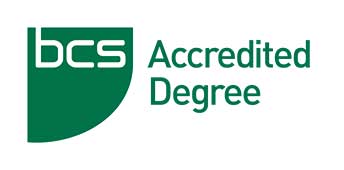Designed to meet the needs of industry, MSc Advanced Computer Science will help you to build on your computing experience and develop cutting-edge IT skills.
You will develop an in-depth understanding of the topics that are defining the industry today and will gain advanced technical skills in areas such as advanced programming, database systems, big data and cloud computing, machine learning, human computer interaction, wireless networks and security.
You will be taught in Northumbria’s brand new purpose-built computing facility on our Newcastle City Centre campus with access to industry standard equipment and technology.

Accredited by BCS, the Chartered Institute for IT for the purposes of partially meeting the academic requirement for registration as a Chartered IT Professional.
Accredited by BCS, The Chartered Institute for IT on behalf of the Engineering Council for the purposes of partially meeting the academic requirement for registration as a Chartered Engineer.
Are you interested in pursuing an IT career, but don’t have an undergraduate degree in a computing-related subject? MSc Computer Science is the course you’ll need to help you change direction.
Why Study Computing and Information Technology at Northumbria?
- Quality Teaching: Computer & Information Technology at Northumbria is ranked Top 15 in the UK for teaching satisfaction (Guardian University League Table, 2025).
- Research Excellence: 81% of our research outputs are internationally excellent *** and world-leading **** REF 2021.
- Top Department: Northumbria is ranked 3rd in the UK for Information Systems & Management studies (Times Good University Guide, 2025).
 Option for Placement Year
Option for Placement Year Option for Study Abroad
Option for Study Abroad














